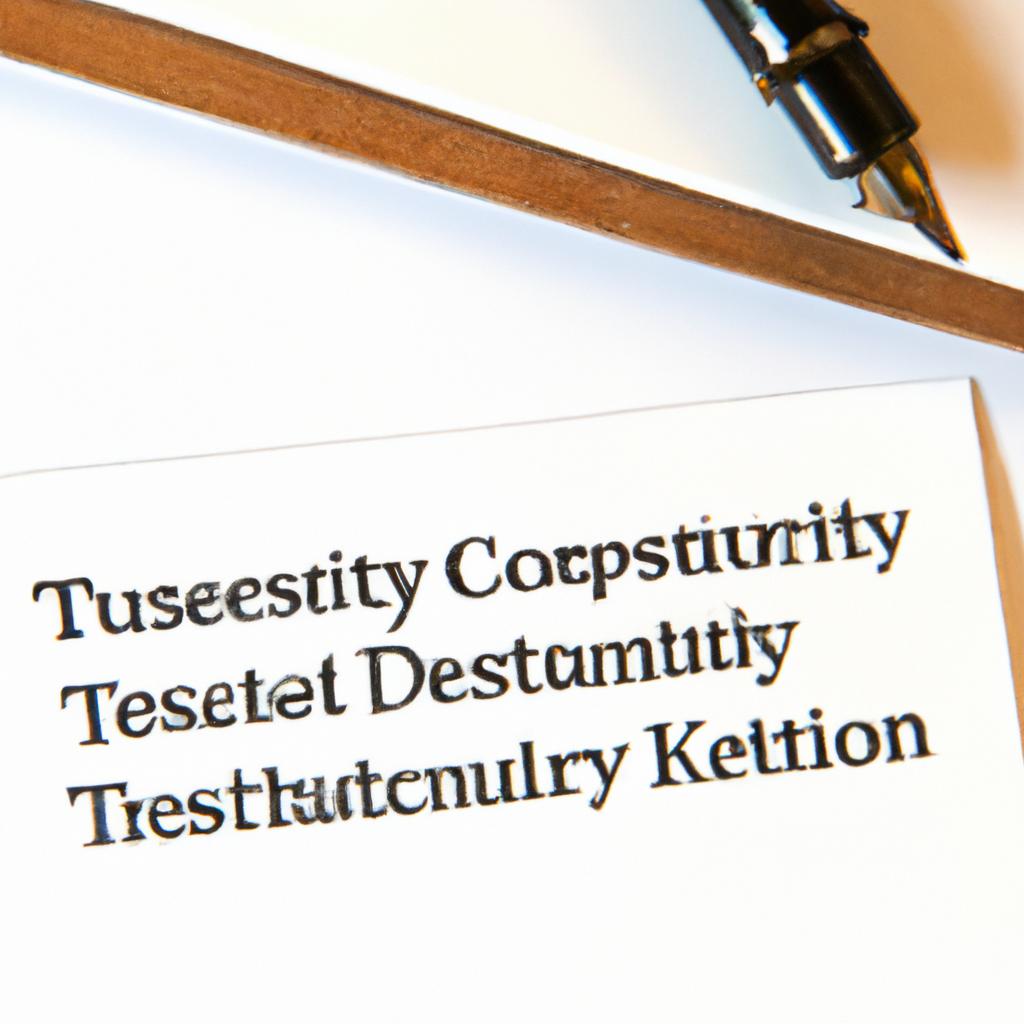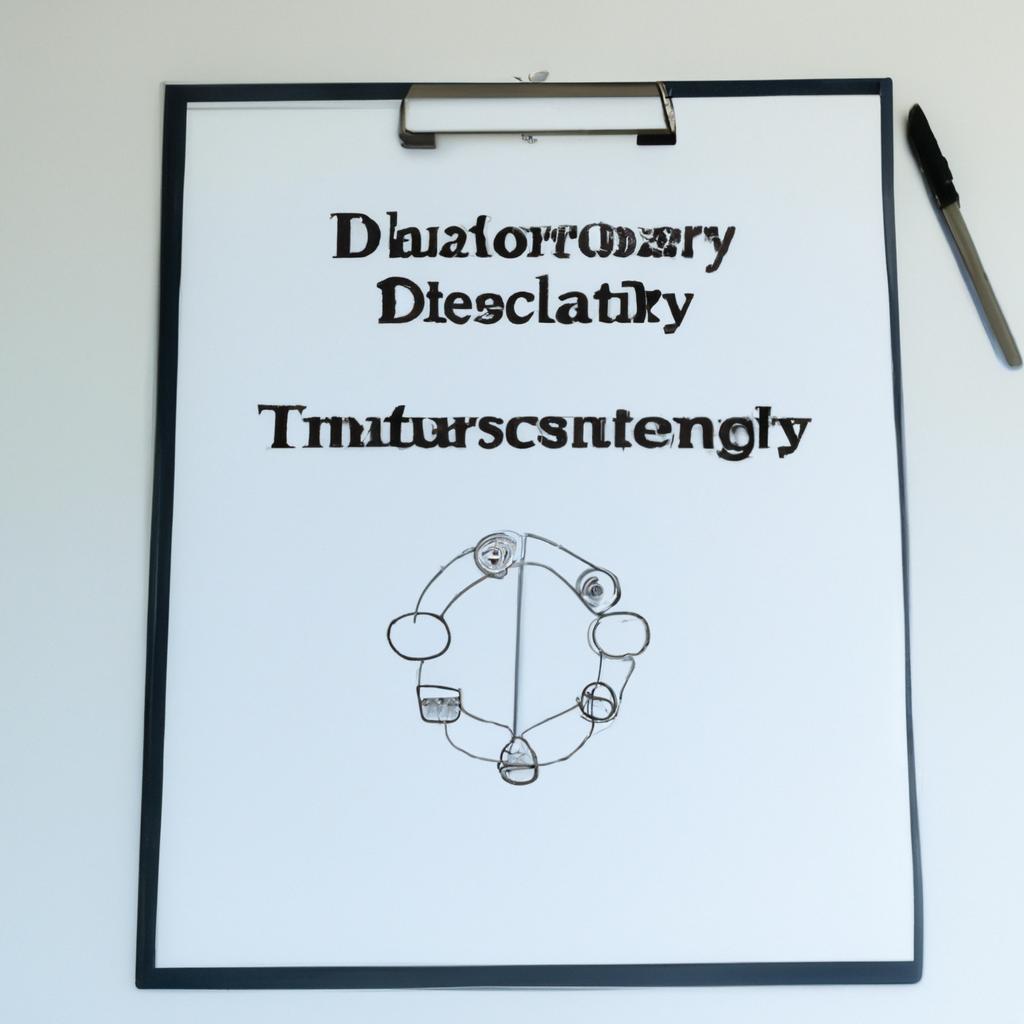Welcome to Morgan Legal Group, where our team of experienced attorneys specializes in estate planning, probate, elder law, Wills, and trusts. In this article, we will guide you through the intricate process of setting up a discretionary trust. A discretionary trust can provide a flexible and secure way to manage your assets and ensure the financial well-being of your loved ones. Join us as we explore the benefits and considerations of establishing a discretionary trust and how our team can assist you in navigating this complex legal landscape.
Understanding the Purpose and Benefits of a Discretionary Trust
When it comes to estate planning, setting up a discretionary trust can provide flexibility and control over how assets are distributed. A discretionary trust allows the trustee to use their discretion in determining how and when to distribute assets to beneficiaries, providing added protection and privacy. This type of trust can be particularly beneficial in situations where beneficiaries may not be able to handle a large sum of money all at once, such as minors or individuals with special needs.
By setting up a discretionary trust, you can ensure that your assets are managed and distributed according to your wishes, even after your passing. This type of trust can also offer tax benefits and protection from creditors, making it a valuable tool in estate planning. With the help of experienced estate planning attorneys like Morgan Legal Group in New York City, you can create a comprehensive plan that includes a discretionary trust to provide for your loved ones and safeguard your assets for future generations.

Key Considerations When Choosing Trustees for Your Discretionary Trust
When choosing trustees for your discretionary trust, it is crucial to consider individuals who possess the necessary qualities and characteristics to effectively manage and administer the trust. Here are some key considerations to keep in mind:
- Trustworthiness: Select trustees who are trustworthy and have a strong sense of integrity. They should be honest, reliable, and capable of managing the trust assets responsibly.
- Financial acumen: It is important to choose trustees who have a good understanding of financial matters and investments. They should be able to make informed decisions regarding the management of the trust assets.
- Availability: Trustees should be readily available to fulfill their duties and responsibilities. They should be willing to devote time and effort to administer the trust effectively.
| Name | Qualities |
|---|---|
| John Smith | Trustworthy, financial acumen |
| Sarah Johnson | Trustworthy, availability |
Additionally, consider selecting individuals who have a good relationship with the beneficiaries of the trust and who are able to communicate effectively with them. This will help ensure a smooth administration of the trust and prevent any potential conflicts or misunderstandings. By carefully choosing trustees who possess the right qualities and characteristics, you can help safeguard the future of your discretionary trust and ensure that your wishes are carried out in accordance with your intentions.

Drafting Protocols to Safeguard Assets and Ensure Compliance within a Discretionary Trust
When setting up a discretionary trust, it is crucial to draft protocols that effectively safeguard assets and ensure compliance with legal regulations. By establishing clear guidelines and procedures, trustees can effectively manage the trust’s assets while minimizing the risk of disputes or challenges.
Key considerations when drafting protocols for a discretionary trust include:
- Defining the Trust’s Purpose: Clearly outline the goals and objectives of the trust to guide decision-making processes.
- Identifying Beneficiaries: Specify the criteria for determining beneficiaries and their respective entitlements.
- Setting Investment Guidelines: Establish parameters for investment decisions to maximize returns while minimizing risks.
- Ensuring Compliance: Implement protocols to ensure compliance with relevant laws and regulations to mitigate legal risks.

Tailoring Your Discretionary Trust to Meet Specific Needs and Objectives
Creating a tailored discretionary trust can be a strategic way to meet specific needs and objectives when it comes to estate planning. By customizing the terms of the trust, you can ensure that your assets are managed and distributed in a way that aligns with your wishes and goals. Whether you want to provide for your family members, support charitable causes, or protect your assets from creditors, a discretionary trust can offer flexibility and control over how your wealth is passed down to future generations.
When setting up a discretionary trust, it’s important to consider the unique circumstances of your situation and work closely with a skilled attorney to draft the trust document. By carefully outlining the beneficiaries, trustees, distribution guidelines, and investment strategies, you can maximize the benefits of the trust for you and your loved ones. With the guidance of a legal professional, you can ensure that your trust operates effectively and efficiently, providing peace of mind for you and your family for years to come. Trust Morgan Legal Group in New York City to assist you in creating a discretionary trust that meets your specific needs and objectives.
| Benefits of a Tailored Discretionary Trust |
|---|
| – Flexibility in asset management |
| – Control over distribution of assets |
| – Protection from creditors |
Q&A
Q: What is a discretionary trust?
A: A discretionary trust is a legal arrangement where assets are held by trustees on behalf of beneficiaries, whose entitlement to the assets or income is determined at the discretion of the trustees.
Q: Who can benefit from a discretionary trust?
A: Beneficiaries of a discretionary trust can be family members, friends, or charities chosen by the settlor. The trustees have the flexibility to choose who will benefit from the trust based on the circumstances at the time.
Q: How is a discretionary trust set up?
A: A discretionary trust is set up by a settlor who transfers assets or funds to trustees, along with written instructions on how the assets should be managed and distributed. The trustees then hold and distribute the assets in accordance with the terms of the trust deed.
Q: What are the benefits of setting up a discretionary trust?
A: Setting up a discretionary trust can provide asset protection, tax benefits, and flexibility in distributing assets to beneficiaries. It can also help to preserve wealth for future generations and avoid potential disputes over inheritance.
Q: Are there any downsides to setting up a discretionary trust?
A: Discretionary trusts can involve administrative costs, ongoing legal fees, and complex tax implications. There may also be restrictions on who can be appointed as trustees and potential challenges in managing the trust effectively.
Q: How can I ensure the success of a discretionary trust?
A: To ensure the success of a discretionary trust, it is important to carefully consider the terms of the trust deed, choose trustees who are trustworthy and competent, and regularly review and update the trust to reflect changing circumstances. Seeking professional legal and financial advice is also recommended.
Closing Remarks
In conclusion, setting up a discretionary trust can be a beneficial way to manage and distribute assets for the benefit of your loved ones. By carefully considering your goals and working with a knowledgeable advisor, you can create a trust that provides flexibility and protection for your assets. Remember to regularly review and update your trust to ensure that it continues to meet your needs. With the right planning and guidance, a discretionary trust can be a valuable tool for preserving your legacy for future generations.
 Setting Up a Discretionary Trust: Everything You Need to Know
Setting Up a Discretionary Trust: Everything You Need to Know
A trust is a legal arrangement in which a trustee holds and manages assets for the benefit of one or more beneficiaries. A discretionary trust, also known as a family trust, is a type of trust that provides flexibility in distributing assets to beneficiaries. It allows the trustee to make decisions on how and when assets are distributed to beneficiaries according to their individual needs and circumstances.
As with any legal arrangement, setting up a discretionary trust can be a complex process. In this article, we will discuss everything you need to know about setting up a discretionary trust, including its benefits, practical tips, and case studies.
Benefits of Setting Up a Discretionary Trust
1. Flexibility in asset distribution
The primary benefit of setting up a discretionary trust is the flexibility it provides. Unlike other trusts, where beneficiaries have a fixed entitlement to assets, in a discretionary trust, the trustee has the power to decide the distribution of assets to beneficiaries. This allows the trustee to consider each beneficiary’s specific needs and circumstances and tailor the distribution accordingly.
2. Asset protection
Discretionary trusts can also help protect assets from creditors and lawsuits. As the assets are held by the trustee and not directly owned by the beneficiaries, they are not subject to the beneficiaries’ personal liabilities.
3. Minimizes tax burden
Through proper tax planning, a discretionary trust can help minimize the tax burden on beneficiaries. The trustee can use the tax rates of individual beneficiaries to distribute assets in a tax-efficient manner, ultimately reducing the overall tax liability.
4. Continuity of assets
Setting up a discretionary trust can ensure the continuity of assets, even after the death of the beneficiaries. The trustee can appoint successor beneficiaries to ensure the assets remain within the family and continue to benefit future generations.
Practical Tips for Setting Up a Discretionary Trust
1. Determine the purpose of the trust
Before setting up a discretionary trust, it’s crucial to determine its purpose. Is it for asset protection, tax planning, or succession planning? The purpose of the trust will determine its structure, terms, and conditions.
2. Choose the trustee wisely
The trustee is the legal owner of the trust assets and holds a fiduciary duty to act in the best interest of the beneficiaries. It’s essential to choose a trustee who is trustworthy, financially responsible, and capable of handling the responsibilities.
3. Set terms and conditions
Setting clear terms and conditions is vital in a discretionary trust to avoid any potential conflicts among beneficiaries. These terms can include restrictions on the distribution of assets, how the trustee makes decisions, and how the trust can be terminated.
4. Keep detailed records
As the trustee is responsible for managing assets on behalf of beneficiaries, it’s crucial to keep detailed records of all transactions, income, and expenses of the trust. This will help ensure transparency and accountability.
Case Studies
1. The Smith Family Trust
The Smith family has a considerable estate and wants to minimize their tax liability while also providing for their children and grandchildren. They have set up a discretionary trust where the trustee, Mr. Smith, can distribute assets to their four children and six grandchildren at his discretion.
By utilizing the tax rates of each individual beneficiary, Mr. Smith can distribute assets in a tax-efficient manner and minimize the overall tax burden on the estate.
2. The Brown Siblings Trust
The Brown siblings have inherited a large sum of money from their late father’s estate. As they all have different financial needs and lifestyles, they have decided to set up a discretionary trust to manage and distribute the inheritance.
The trust allows the trustee, their cousin, to consider each sibling’s needs and circumstances and distribute the assets accordingly. This has helped prevent any potential conflicts among the siblings and ensures that their father’s legacy continues to benefit them.
Final Thoughts
Setting up a discretionary trust is an excellent estate planning tool that allows flexibility in distributing assets to beneficiaries while also providing asset protection and minimizing taxes. However, it’s essential to seek the assistance of a legal professional to ensure all legal requirements and tax implications are addressed. With proper planning and due diligence, a discretionary trust can be a valuable addition to your estate plan.

